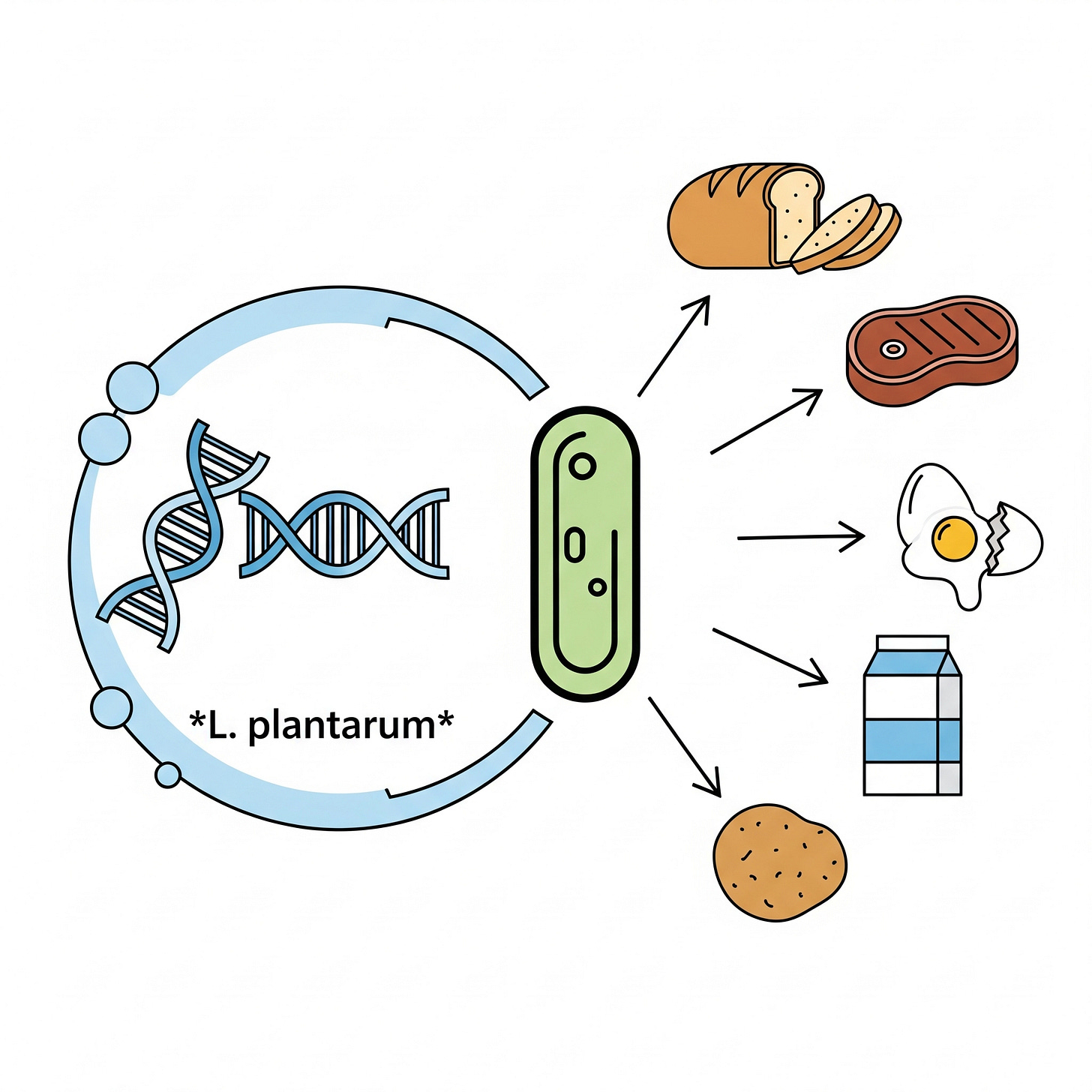Starch is the foundation of the human diet, the primary source of calories for billions. It’s the substance of bread, rice, corn, and potatoes. But producing it through traditional agriculture requires immense resources: fresh water, fertilizer, and vast tracts of arable land.
At Bactelium, we are developing a way to produce amylose—a primary component of digestible starch—without any of those things. Our solution is precision fermentation.
The Science: We are engineering bacteria to become microscopic starch factories. Our initial research has focused on methylotrophic bacteria, organisms that can consume simple carbon compounds like methane or methanol as their sole energy source. By equipping these microbes with the three plant genes necessary for amylose synthesis (the large and small subunits of AGPase, and Waxy), we can convert these non-food inputs directly into human-digestible starch. Our proof-of-concept experiments have already been successful, yielding measurable quantities of amylose from these bacteria.
Where We Are Now: We have demonstrated that this bioconversion is possible and that the resulting starch can be broken down by human salivary amylase (starch digesting enzyme), confirming its digestibility. However, the efficiency of this process in methanotrophs was low, around 1% carbon conversion. While this was due to correctable issues with the specific host strain and genetic constructs used, we are now also pursuing a more robust host:
Lactobacillus plantarum. This food-safe bacterium can grow in saltwater and consume inedible plant parts (cellulose) to produce starch.
What's Next: Our primary goal for the next year is to subclone the starch-synthesis genes into a stable vector (plasmid that can maintain itself in the bacteria permanently) for L. plantarum and begin testing its production efficiency. The ultimate aim is to publish these robust, open-access methods for anyone to use, contributing a vital new tool to the global food security arsenal.
Thank you for joining us on this journey,
Dr. Gregory Willkeen


